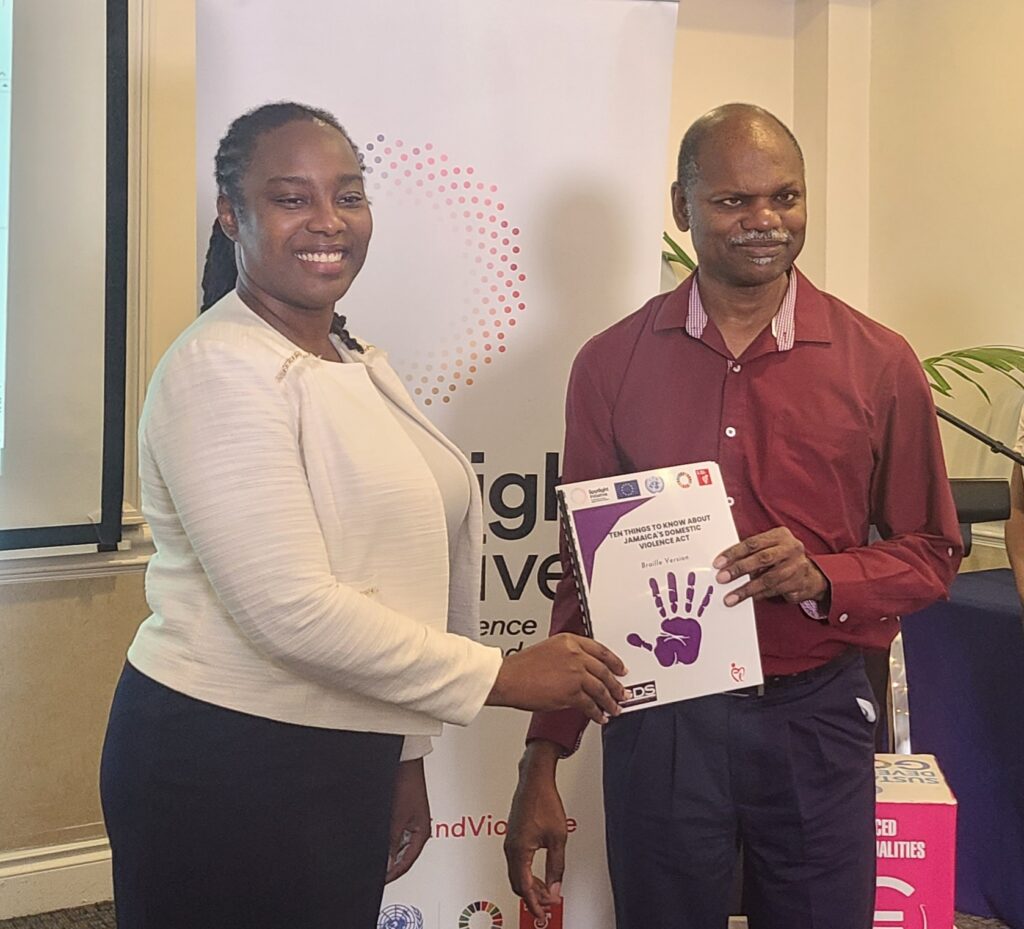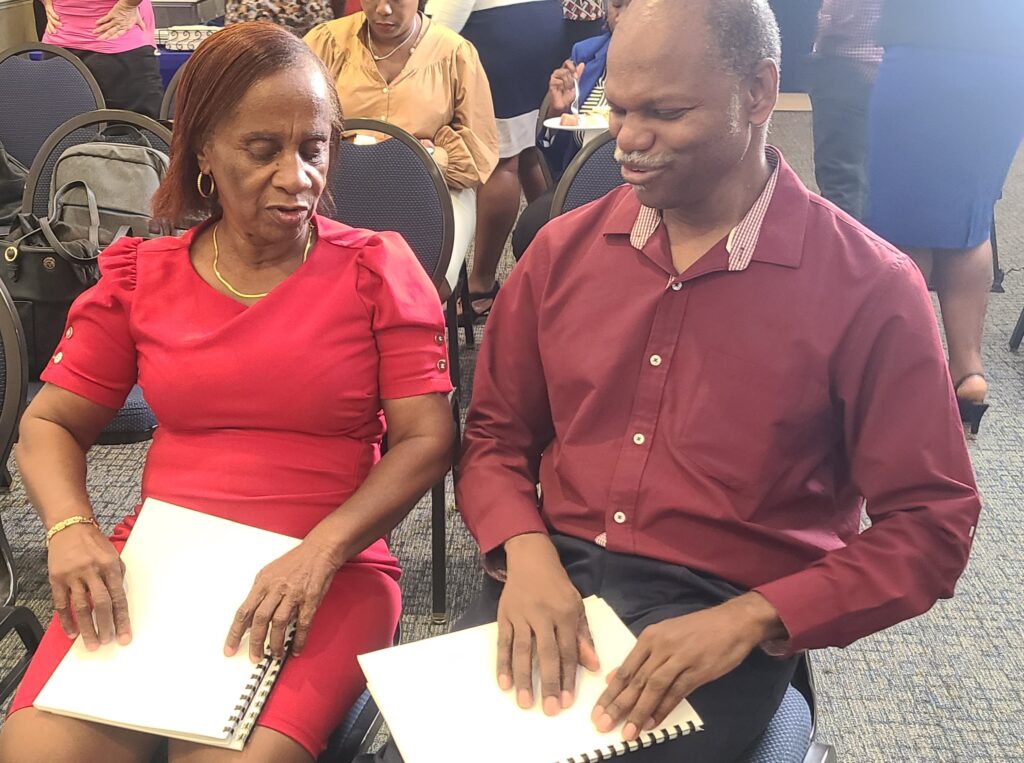

In an effort to foster a more inclusive society, the United Nations Development Programme (UNDP) has donated braille booklets and videos on the Domestic Violence and Sexual Harassment Act to the Combined Disabilities Association and the Jamaica Society for the Blind (JSB) to ensure they are fully accessible to persons who are deaf and blind.
Produced under the Spotlight Initiative, the communication materials highlight key provisions, rights, and responsibilities of the Domestic Violence and Sexual Harassment Acts.
Shellian Forrester, programme officer for the UNDP, noted that often persons living with disabilities are at risk of being left behind in accessing their rights under the legislation because conventional forms of communication are not inclusive.
“We knew that braille items were something that the [visually impaired community] always advocated for, so when the opportunity presented itself with the Spotlight initiative, for us to be able to do these items and produce these videos for the deaf community, we really jumped on the chance because we knew of the need,” said Forrester.

The launch and handing over ceremony of the communication materials on the two Acts took place on Tuesday.
Through the initiative, funded by the European Union, 500 braille booklets on the Domestic Violence Act and 500 on the Sexual Harassment Act will be donated to the JSB. An additional 500 booklets on the Sexual Harassment Act and 500 on the Domestic Violence Act, as well as video presentations on the Act in sign language, will be donated to the Combined Disability Association for distribution.
Gloria Goffe, executive director of the Combined Disabilities Association, in her remarks, thanked the UNDP for its contribution to building an inclusive society. She noted that access to information is critical, especially when it comes to legislation geared at protecting citizens.
“Although we are in the technology age, we still want to be able, for those of us who want read braille, to take up a page, run our fingers down on the page and find our way, especially when you don’t have equipment near you and the battery run out, and electricity is not working so that you can access the information online,” said Goffe.

She noted that visually impaired persons visit her office to access information on the Domestic Violence Act, and the braille books will help them to make an informed decision.
Conrad Harris, executive director for the JSB, also applauded the initiative.
“We are pleased that the effort was made to put the material into braille, and we, at the JSFB level, will do everything we can to ensure that it is circulated to all our members who read braille, especially those who live in rural Jamaica,” said Harris.
In her remarks, the head of the delegation for the European Union (EU) in Jamaica, Ambassador Marianne Van Steen, said that the EU is committed to raising awareness of the living conditions of persons with disabilities and the challenges they encounter daily.
“We recognise that abuse can thrive in areas where persons are most defenceless and support this effort to shine a light on abuse against persons with disabilities to enlighten these individuals about their rights and to encourage society to protect these rights,” said Van Steen.







Comments